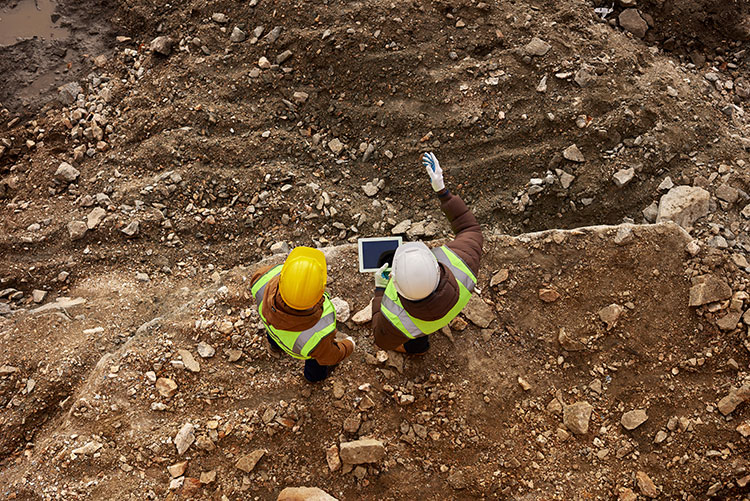
10 Tips for Keeping Your Projects on Track
10 Tips for Keeping Your Projects on Track
Managing a construction project comes with its fair share of challenges. If you ask any project manager, they will tell you that the daily management of a construction project is no easy task. Project managers must juggle budgets and workers under tight deadlines, requiring a great deal of planning and strategy. Thankfully, there are a few tips that you can implement to make the job a little easier.
Here are 10 tips to help you monitor and manage your construction project more effectively on a daily basis.
Table of Contents
1. Bids vs. actuals
Keeping track of bids vs. actuals is one extremely important practice to put into place. This means that you need to track what you actually do vs. what you initially bid. Tracking this will help you determine your accuracy and improve in future estimates. For example, if you are under budget you can reduce estimates in the future and be more competitive.
2. Establish key performance indicators
Once you know your business goals and benchmarks, define your KPI’s! Being diligent about KPI tracking and analyzing your performance can help improve your decision-making on the job site!
3. Keep a clear line of communication
Working in construction means that you will likely be managing a large number of employees. The best way to stay on top of managing your team is to keep a clear line of communication. Scheduling regular meetings is one way to establish open and clear communication. Although it might seem unnecessary, it will save you time and effort in resolving issues later on!
4. Stay on schedule
Subcontractors need to know if they are on track on a daily basis so they can make corrections and avoid costly mistakes. Falling behind schedule is one of the most common reasons for lost revenue. Tracking progress day-to-day can help avoid this!
5. Shuffle resources in real-time
Staying alert and aware of your resources can also help avoid any costly delays. If you see you are falling behind on labor, shuffle your resources and add more people the day. This will prevent falling behind schedule and will save you from incurring any monetary losses.
6. Document all activity
Make sure you are adamant about documenting all activity. If expenses go over budget, you will have documentation to understand why and will be able to get paid for the additional expenses.
7. Track lost hours
Tracking lost hours can help improve project management in many ways. A few of the ways you can leverage lost hours include:
— Get paid for hours worked if it’s not their fault
— Leverage as a favor done for the general contractor to avoid additional extra favors
— Provide the General contractor with information about problems at the site
— See if there are patterns which could be avoided in the future
8. Use daily reports
Using daily reports can help you to automatically create
— Cost to complete reports
— Percent of efficiency reports
— Hours lost reports
— Time cards
— Internal collaboration
9. Always plan for contingencies
Construction projects are filled with dependencies and external factors (for example environmental) that place schedules at risk. Analyze your project plan before construction starts and identify potential risk areas, and have contingencies in place should something occur. Being ill prepared can prove quite costly for your project.

10. Use construction software to manage construction projects
Use a construction software such as eSUB to help mitigate the risk of disputes or not being fully paid for your work. eSUB Construction Software has built-in protection in the form of legal approved language in every form and by capturing what happens in the field. In addition, construction software provides the strategy to track project activities, monitor costs and ultimately deliver a successful and profitable project!
Project management is a challenging task, but implementing these tips can help you stay on top of it all!
FAQs (Frequently Asked Questions)
1. Why is tracking bids vs. actuals essential in construction project management?
- Tracking bids vs. actuals allows project managers to assess the accuracy of their initial estimates. It helps in identifying areas where adjustments are needed, potentially reducing costs and improving competitiveness in future bids.
2. What are Key Performance Indicators (KPIs) in construction, and why are they important?
- KPIs are measurable metrics used to gauge a project’s performance and progress toward business goals. Establishing KPIs helps project managers make informed decisions and continuously improve project outcomes.
3. How can clear communication benefit construction project management?
- Clear communication is vital in managing large construction teams. Regular meetings and open communication channels help prevent and resolve issues efficiently, saving time and effort in the long run.
4. Why is staying on schedule crucial for construction projects?
- Staying on schedule is essential to avoid costly delays and lost revenue. It allows subcontractors to make necessary corrections in real-time, ensuring the project progresses smoothly.
5. What is the significance of shuffling resources in real-time during construction projects?
- Shuffling resources in real-time helps prevent schedule delays and monetary losses. Adding more personnel when falling behind on labor ensures that the project stays on track and minimizes disruptions.
6. Why is documenting all activity important in construction project management?
- Documenting all activity provides a clear record of expenses and project developments. It helps project managers understand cost overruns and ensures proper documentation for additional expenses.
7. How can tracking lost hours benefit construction project management?
- Tracking lost hours serves multiple purposes, including ensuring payment for hours worked, fostering collaboration with general contractors, identifying site problems, and avoiding recurring issues in future projects.
8. What are the advantages of using daily reports in construction project management?
- Daily reports help automate various aspects of project management, including cost analysis, efficiency monitoring, timekeeping, and internal collaboration, leading to more efficient and organized project management.
9. Why should construction projects always plan for contingencies?
- Contingency planning is crucial because construction projects involve various dependencies and external factors that can disrupt schedules. Being prepared for potential risks and having contingency plans in place can prevent costly setbacks.
10. How can construction software, like eSUB, enhance project management?
- Construction software, such as eSUB, offers legal protection with approved language in forms and captures field activities. It provides tools to track project activities, monitor costs, and ensure successful and profitable project delivery, reducing the risk of disputes and payment issues.